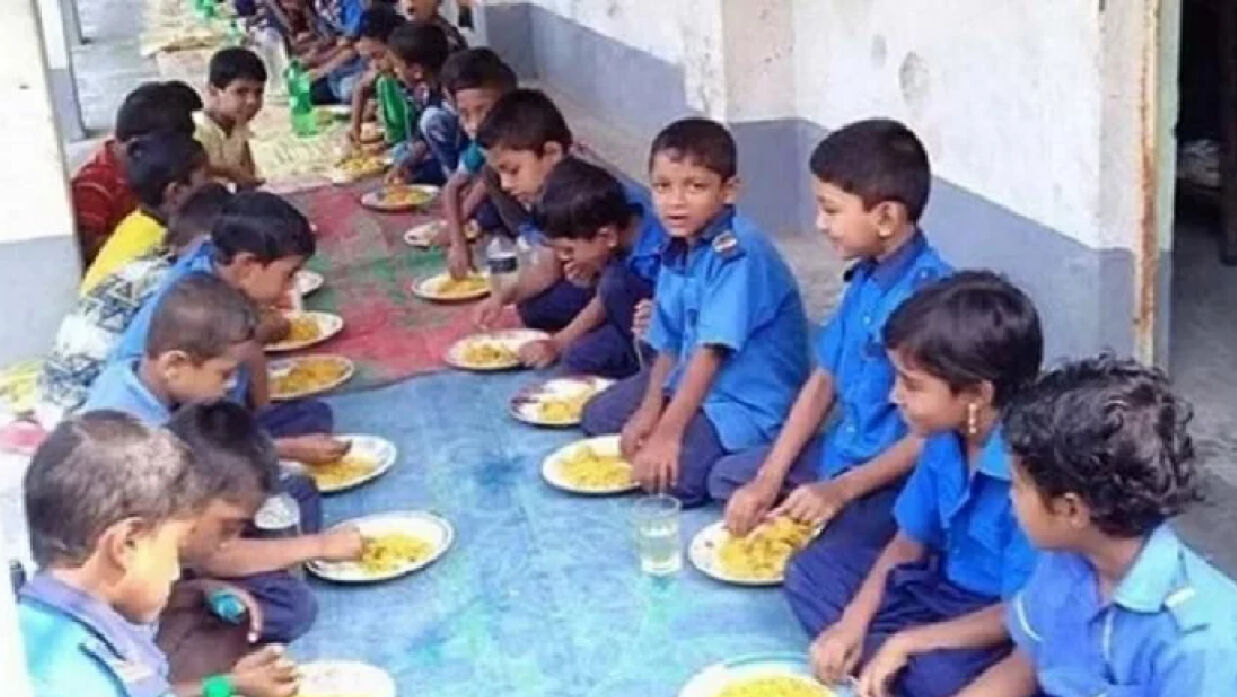After a two-year hiatus, the government is set to reintroduce the mid-day meal program in primary schools with the aim of reducing dropout rates among students. This initiative will commence on a larger scale in 150 upazilas from August, according to multiple sources from the Ministry of Primary and Mass Education.
Details of the Program
The program, targeting impoverished areas, will initially cover approximately 3.7 million students across 19,000 government primary schools for a three-year duration. The estimated budget for this project is about 4,700 crore BDT, with 4,181 crore BDT allocated for food procurement. The remaining funds will be spent on contractors, transportation, service charges, food distribution, and packaging. If successful, the program may be extended to all schools nationwide.
Ministry Statements and Background
Officials from the Ministry of Primary and Mass Education stated that Finance Minister Abul Hassan Mahmud Ali highlighted the school feeding program in his budget speech. Given its priority status, the Planning Commission has indicated that the project is likely to be swiftly approved.
Historically, the World Food Programme (WFP) ran a school feeding project from 2001 to 2009. Subsequently, in 2010, the government launched a school feeding program in over 15,300 primary schools across 104 impoverished upazilas, benefiting about 3 million children with fortified biscuits and hot meals in three upazilas.
This initiative continued until June 2022. In August 2020, the Ministry developed a five-year project worth 17,290 crore BDT to provide meals to all students in 65,566 government primary schools. However, the project faced criticism due to proposed foreign trips for officials to learn how to prepare khichuri (a traditional dish), leading to its rejection in the ECNEC meeting.
New Program Components
Farid Ahmed, Secretary of the Ministry of Primary and Mass Education, announced that the new program will not only provide fortified biscuits but also seasonal fruits, bananas, eggs, and bread. Additionally, another parallel school feeding program will start in July for about 220,000 students in the primary schools of Cox’s Bazar and Bandarban districts.
Impact and Benefits
According to a 2018 WFP survey, the mid-day meal program previously resulted in a 4.2% increase in school enrollment and a 7.5% decrease in dropout rates.
The reintroduction of the mid-day meal program aims to replicate and expand upon these positive outcomes, helping to improve student retention and nutritional status across primary schools in Bangladesh.
- Pixel Tap Daily Combo: Pixelverse In-game Rewards - September 6, 2024
- Gemz Daily Combo Rewards: Earn Extra Coins Daily - September 5, 2024
- Red Magic 9S Pro: A Powerful Gaming Phone with 6500mAh Battery and 24GB RAM - July 4, 2024
